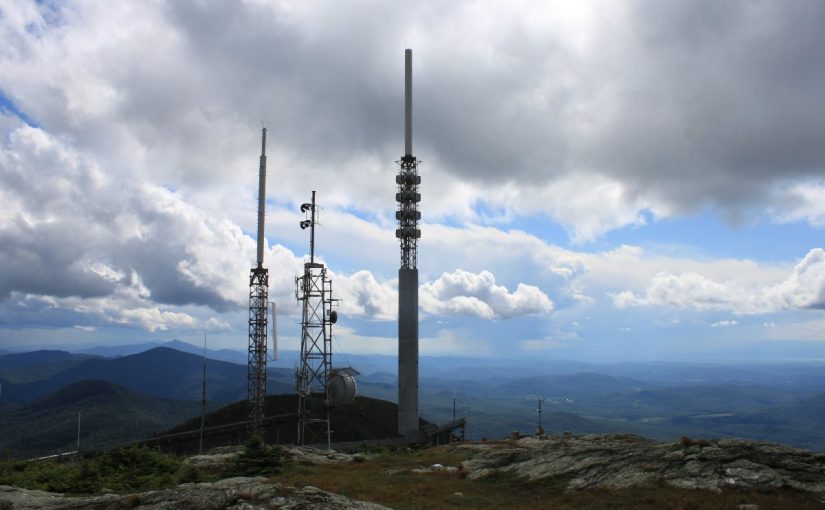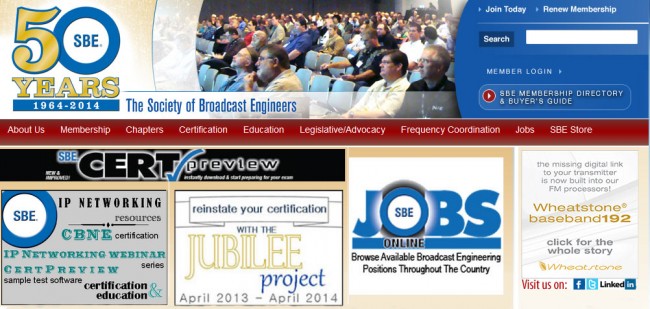Nature abhors a vacuum.
There has been a lot of hand-wringing and ink spilled recently on the titled subject. The problem seems to be particularly acute when it comes to RF knowledge. I agree with those concerned that there are very few new (read also as young) people entering the field. There are a number of reasons for this; competing technical fields that pay more and are generally easier to work in, the very broad knowledge base required for Broadcast Engineering, and the lack of awareness by major stakeholders.
It seems obvious that for as long as there are radio and television stations, there will need to be those people who install and maintain the transmission systems. The question is, how to attract new people into that field? In order to answer that question, a follow on question would be, what exactly does a Broadcast Engineer do?
This can be broken down into three very broad areas:
- Conversion of the art into electronic form. In other words, capturing sound and video with cameras and microphones. What are the various analog and digital formats, how are those signals routed, edited, stored, retrieved, and transmitted. What are the various bit reduction (e.g. compression) formats. How these live streams and stored files are mixed to generate the final program material.
- Transmission of the program material. Meaning moving the program to the transmitter site and broadcasting it for public reception. This would involve knowledge of Studio To Transmitter (STL) systems which can vary greatly but often include satellite distribution, public internet, fiber, RF wireless microwave systems, etc. The next step is the actual transmitter, filters, combiners, transmission line, and antenna. Knowledge of all regulatory (in the US, FCC) obligations including EAS, Tower lighting and marking, transmitter operations; power level, interference, etc.
- Physical plant systems. Broadly speaking; HVAC, electrical power, emergency generators, towers, fire suppression, etc.
These work categories can be further broken down into three functions; installation, maintenance, and replacement.
Since I have been more involved in the management side of things lately, I find that most of my problems are people problems. What may be a surprise to some is, Broadcast Engineers are people. What may be even more shocking; people have interests. Those interests are the reason why they chose to work in a technical field. Forcing the IT guy to go to the transmitter site to see why the generator won’t start is not a good use of resources.
Looking at the very large skill set that a competent Broadcast Engineer needs to function in a modern broadcast facility, the first part of the answer becomes obvious; more specialization. Break down these broad categories into separate skill sets. Since it seems that many things are headed toward the IP domain, Broadcast IT should become a thing separate from office IT. While the two are similar, Broadcast IT requires more knowledge of physical wiring, switch architecture, VLANs, subnets, IP streaming protocols, audio formats, video formats, transport streams, etc.
RF infrastructure has its own set of rules, including personal safety requirements. A solid electronics/engineering background is required to understand how transmitters work, what various failure modes are, and what can cause them.
Physical plant work most often can be contracted out to various vendors. However, that work needs to be supervised by a competent station representative.
The next item is the thing that nobody wants to talk about; the importance of work/life balance. This means not utilizing a broadcast engineer as a piece of equipment to be worn out and discarded when the performance level drops below expectations. I know several broadcast engineers who have left the industry because of this. Worse still, there are those who have died of heart attacks or committed suicide. Work/life balance also includes proper compensation, so those people can afford to pay for essentials, have a reliable vehicle, healthcare, etc.
Of course, many smaller operators cannot afford to hire an RF specialist and a Broadcast IT specialist plus pay contractors to do physical plant maintenance. This is where contracting can fill in the vacuum. If contracting becomes the new normal, then how does the next generation of Broadcast Engineers get trained? Broadcast transmitter manufacturers have some training courses available as does the SBE. However, there is no substitute for hands-on experience. While many Broadcast Engineering evolutions are similar, no two situations are the same, and thinking on your feet is a job requirement. How are new people coming into the field get the necessary experience? The situation is not untenable, however, it will require some creative thought.


